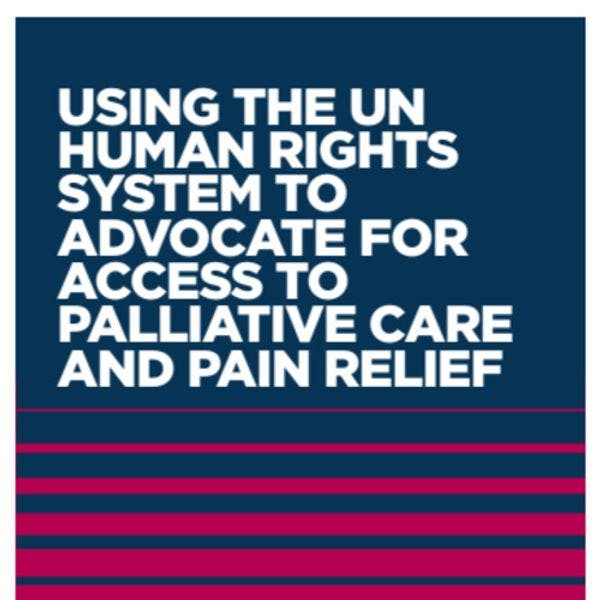Cómo usar el sistema de derechos humanos de la ONU para abogar por el acceso a los cuidados paliativos y el alivio del dolor
Este manual está concebido como un recurso para las organizaciones que se plantean abogar por un mayor acceso a los cuidados paliativos y el alivio del dolor como un derecho humano en el marco del sistema de derechos humanos de las Naciones Unidas. Más información, en inglés, está disponible abajo.
Suscríbase a las Alertas mensuales del IDPC para recibir información sobre cuestiones relacionadas con políticas sobre drogas.
This toolkit is intended to serve as a resource for organizations considering advocating for increased access to palliative care and pain relief as a human right within the United Nations human rights system. It clarifies what human rights are and how they are relevant to palliative care, as well as what the UN Human Rights System is. It also presents why and how to engage with the UN human rights system to advocate for increased availability and accessibility of quality palliative care and pain relief.
WHAT IS PALLIATIVE CARE?
Palliative care seeks to relieve suffering and improve quality of life for those with life-limiting conditions. It is a holistic approach that improves quality of life for patients and their families by addressing the psychosocial, legal, and spiritual problems associated with life-threatening illness. Palliative care has been shown to be highly effective in managing pain and physical symptoms, and can improve adherence to medications. It is a core component of health care and of the human right to the highest attainable standard of health. It is also connected with a range of other rights and is increasingly recognized as a stand-alone right.
WHAT ARE HUMAN RIGHTS AND HOW ARE THEY RELEVANT TO PALLIATIVE CARE?
Human rights are the basic freedoms and entitlements that we all need in order to live with dignity. They have been secured in international law since the agreement of the Universal Declaration of Human Rights in 1948. Palliative care has been specifically recognized as a component of the right to the highest attainable standard of physical and mental health (the right to health). Similarly, access to pain relief to avoid severe pain and suffering is required under the right to be free from torture and other cruel, inhuman or degrading treatment or punishment.
